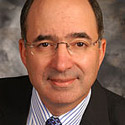02:29 PM
Regulating the Financial Services Industry Is a Balancing Act
Getting regulation right is like balancing on a knife's edge - tilt too far one way and the industry is hamstrung; tilt too far the other way and reduce the trust that is required for a functioning capital market.
Sometimes this trust is violated: the Boskey scandal, Joe Jett, insider trading, the research settlements, late/active mutual fund trading and, unfortunately, too many others. While the perpetrators of these events should be found and prosecuted, the question is: What is the most effective way to regulate fiduciary responsibility and financial markets, and protect investors while allowing the industry to effectively raise capital and manage risk?
While regulation is good, overregulation is not. Sarbanes 404 is pushing listings overseas, and NYSE and NASD oversight constitutes approximately 44 percent of the average number of regulatory investigations in 2005, according to the SIA's February 2006 report, "The Cost of Compliance in the U.S. Securities Industry."
But the overregulation of the past few years is beginning to wane. The chairman of the SEC, Christopher Cox, and the Secretary of the Treasury, Henry Paulson, are talking seriously about reducing the overwhelming impact of Section 404 of Sarbanes-Oxley. And a November industry-led interterm report from the Committee on Capital Markets Regulation that examined the competitiveness of the U.S. financial markets, as well as the recent news that the NYSE and NASD are consolidating their regulatory agencies, suggest that pressure to ease regulatory burdens is building.
While the majority of outsiders and watchdogs will probably rally against these efforts, the integration of the NYSE and NASD regulatory arms should actually provide more-effective oversight with less overhead.
The challenge with today's joint oversight is that investors, markets and the brokerage industry have changed. Traditionally, the NYSE and Nasdaq were fundamentally different markets. The NYSE was an auction market, while the Nasdaq was a quote-based market. In addition, brokers' listed and over-the-counter businesses were fundamentally different and separated. Listed traders worked primarily as agency brokers while OTC desks were market makers that internalized flow.
Larry Tabb is the founder and CEO of TABB Group, the financial markets' research and strategic advisory firm focused exclusively on capital markets. Founded in 2003 and based on the interview-based research methodology of "first-person knowledge" he developed, TABB Group ... View Full Bio























